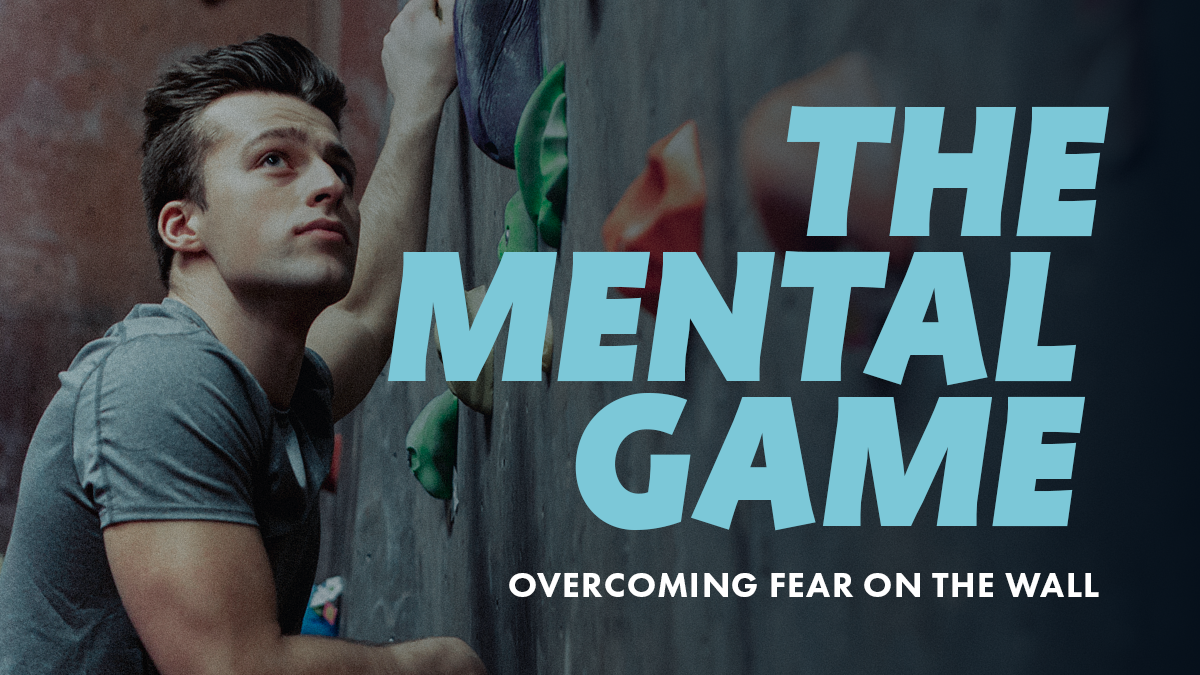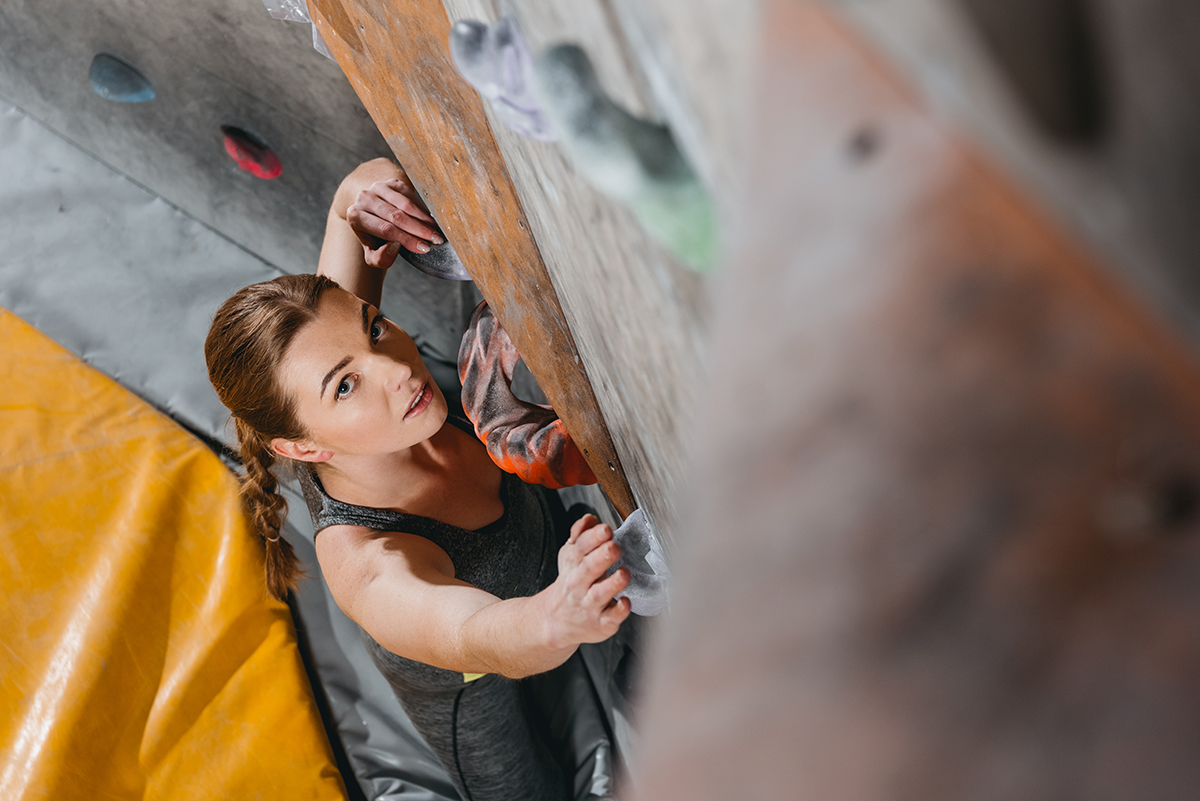
Every time you face the wall, you’re becoming stronger, mentally and physically. Have you ever been bouldering outdoors and had that moment when you must move up to reach the next hold, but your mind says no? You have a ground full of crash pads for bouldering, and your friends are there to spot you, but you can’t force yourself to move up any further?
Oftentimes, you can physically finish the boulder, but your mind doesn’t allow you to. Before you get down on yourself, you should know that fear is an entirely natural part of climbing, even for experienced climbers! The good thing? You know what you must train: your mental game.
1. Understand Where Fear Comes From
While we have evolved to understand the fight-or-flight response that occurs in our brain, it doesn’t mean it’s easy to ignore. It makes sense because it’s the brain’s natural response to perceived danger.
The four most common climbing fears include heights, falling, failure, and a lack of control. The first step to overcoming and strengthening your mental game is to understand the source of your fear. Your fear likely stems from multiple reasons, which is perfectly normal! The plan is to normalize your fear.
2. Use Your Breath to Stay Present
You want to try to avoid shallow breathing. This includes short, fast breaths that increase anxiety. Instead, focus on deep breathing to calm the nervous system. Try using these techniques next time you climb: box breathing, exhale on movement, and breath checks at rests. Staying present helps shift your focus from fear to the next move.
- Box breathing: A structured pattern of similar times spent inhaling, holding, and exhaling, such as 4:4:4.
- Exhale on movement: Practice exhaling as you make each move while climbing.
- Breath checks at rest: Check in with yourself when you’re resting to make sure you’re breathing efficiently.
3. Break the Route into Manageable Sections
Try not to think about the entire climb when you’re sitting on your crash pad for bouldering, staring up at it. Fear often stems from looking too far ahead. Instead, break it into manageable chunks. The climb doesn’t seem as daunting if you shift your focus to smaller sections. Try to focus on the “next good move” instead of the entire climb.
A great mental trick that can help you improve your comfort is: “Just climb to that hold” — then reassess. Treat that hold as a checkmark. Once you get there, you can decide whether to keep going or not.
4. Practice Controlled Falling (and Trusting Your Crash Pads)
Fear of falling is often the fear of the unknown. Crash pads for bouldering have improved significantly and now allow you to cover the entire forest floor as if you were at the gym.
Regardless of coverage, falling is still falling, and what better way to get better at something than to practice it?
The benefits of practicing falls include building trust and familiarity with the movements. Trust in your spotters to help you land on the crash pads, and familiarity with what it feels like to fall from such a height. By gradually increasing your exposure, you can strengthen your head game to become the toughest climber you’ve ever been. Start small and increase height when you feel up to it.
5. Use Positive Self-Talk and Visualization

As with most things in life, your internal dialogue can directly impact your performance. By repeating to yourself, “I can’t do this” or “This is too hard,” you’re setting yourself up for failure. Try to replace your negative self-talk with focused intentions instead. “I can do this.”
Another tool you can use is to visualize yourself climbing before you ever even step on the rock. Run through the beta in your head and do the orchestra conductor-like moves with your hands in front of you while trying to memorize the beta. Visualize yourself climbing through the crux and topping out the boulder. This can help you keep calm when you reach these sections of a climb.
Get Out There!
Fear on the wall is normal, but it doesn’t have to hold you back. Building a strong mental game takes time and practice, just as climbing does. You must stay consistent to see results!


